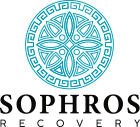Substance use disorders often have underlying causes, such as mental health conditions. One of the most common causes is a history of trauma. The word trauma refers to the emotional response to events such as assault, vehicular accidents, and war-zone experiences. While shock and denial are common immediately following the event, trauma can have long-term effects. Many people turn to drugs or alcohol to control their symptoms. This practice is known as self-medication. At the trauma treatment center at Sophros Recovery, we are committed to helping individuals overcome their addiction and trauma. Please get in touch with our trauma treatment program today at 904.760.4295 for more information about the connection between trauma and addiction.
Types of Trauma
Trauma is a series of events that can have a lasting experience on a person’s mental, physical, and emotional wellbeing. This condition can cause a high level of stress, which can leave their body constantly in a state of fight-or-flight and trigger a release of adrenaline and cortisol. While fight-or-flight can be helpful in the short term, it takes its toll on the body over time. Eventually, the body can no longer distinguish between the individual’s memory of the traumatic event and actual emergencies that require a fight-or-flight response.
In many cases, those who have experienced trauma remain at a standstill, making it impossible for them to move forward in life. In such cases, they may have developed a mental health condition called post-traumatic stress disorder, also known as PTSD. Most people associate PTSD with those who have been in a war-zone, but this mental health condition can also occur after childhood trauma or other experiences, such as:
- Physical, emotional, verbal, or sexual abuse
- Physical or sexual assault
- Domestic violence
- Neglect
- Bullying
- Terminal or chronic illnesses
- Accidents, such as a car crash or house fire
- Natural disasters
The memory of some of these events may seem unbearable, leading people to turn to drugs or alcohol to help them cope or mask their feelings. However, in doing so, many people put themselves in danger of experiencing another traumatic event. In addition, they may become dependent on the drug or alcohol, leading to an addiction.
Trauma Treatment as Part of a Dual Diagnosis Treatment Program
If you have suffered trauma and developed an addiction to alcohol or drugs, you may have a dual diagnosis, otherwise known as a co-occurring disorder. Co-occurring PTSD and addiction are not uncommon. In fact, most veterans who seek treatment for PTSD also abuse drugs or alcohol to manage their symptoms. For instance, it may be tempting to use substances to control symptoms such as:
- Insomnia
- Agitation
- Depression
- Hypersensitivity
- Social isolation
- Anxiety
Sadly, using drugs and alcohol doesn’t work in the long run, and many people quickly develop a tolerance and dependence on the substance of choice. Addiction can have side effects that drastically impact a person’s mental and physical health, and when they combine with the effects of trauma, a person may be significantly worse off than they were initially.
Fortunately, a dual diagnosis treatment program can address the effects of trauma and addiction simultaneously. This treatment will provide strategies for managing the after-effects of trauma while simultaneously giving the individual relief from their addiction.
Seek Treatment at Sophros Recovery
If you or someone you love is suffering from the impact of trauma and addiction, there is hope. At the trauma treatment program at Sophros Recovery, we provide the guidance our clients need to recover fully. We treat the whole person through four distinct treatment aspects, which are as follows:
- Group and individual therapy
- Medication-assisted treatment
- Case management
- Alumni support
Don’t let your trauma prevent you from living a life you love. Contact Sophros Recovery today at 904.760.4295 to learn more about our dual diagnosis treatment programs.







